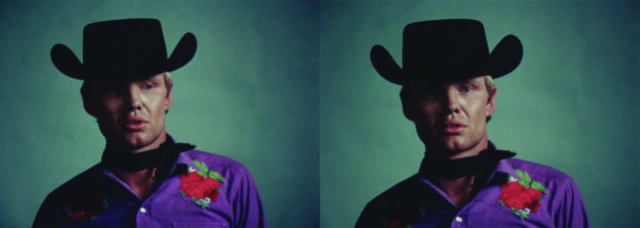
By Regina Weinreich
Today’s Disneyfied Times Square may be family fare, a lure to tourists, but in the 1960s, New York City’s theater district was a milieu for outliers, vagrants, druggies, sex workers and homosexuals, a squalid setting for John Schlesinger’s groundbreaking 1969 Midnight Cowboy. In her innovative latest documentary, Desperate Souls, Dark City and the Legend of Midnight Cowboy, her fourth to be screened at the HIFF, Nancy Buirski examines the film’s moment.
Recently back from film festivals in Venice and Telluride, Buirski observed, “Everyone had seen Midnight Cowboy and had been changed by its compassion, its tenderness, its message that everyone can be loved.” Adapted by screenwriter Waldo Salt from a 1965 novel by James Leo Herlihy, the film has a documentary feel, complete with a Warhol Factory party scene. At center, two oddballs become unlikely friends: Joe Buck (Jon Voight in a breakout role), a baby-faced dishwasher from rural Texas who wants to make it big hustling rich, city women, meets con man and petty thief Ratso Rizzo (Dustin Hoffman proving he could perform a darker role coming off the huge success of The Graduate). His loping gait memorable, Ratso demands to be seen. Crossing a crowded street, he bangs on a cab’s hood: “I’m walking here.”
Evocative clips become a springboard from which Buirski teases out themes of economic disparity, sexuality and violence. The lone cowboy image informs a discussion of the 1964 Goldwater/Johnson presidential election and homoerotic notions of masculinity in the Vietnam War era. Especially good is critic J. Hoberman on the innovative filmmaking of that time.
Reputed to be the only X-rated film to win the Best Picture Oscar, Midnight Cowboy’s few sex scenes are mostly gay, and reflective of the ’60s, they are potentially violent. A teen played by Bob Balaban goes down on Joe Buck in a public lavatory, and cannot pay him. Speaking over 50 years later, the actor opines, today such a film could not be green-lit. But as director Brian De Palma describes that heyday for young filmmakers, Hollywood was looking to sell tickets, which was liberating for creatives like Schlesinger, attuned to the zeitgeist. The Sound of Music wasn’t cutting it. Younger audiences were rebelling, breaking rules in real life, and wanted much more from art than what was conventional.
Buirski had invited culture critic Luc Sante to be in the film. Serendipitously, Luc was gender transitioning to Lucy, and in the documentary offers much to the conversation about gender. “When you make a film, you never know where it will take you,” Buirski said. “Gender redefinition—that’s the new frontier.”
Desperate Souls, Dark City and the Legend of Midnight Cowboy screens at this year’s Hamptons International Film Festival. See hamptonsfilmfest.org for times.





